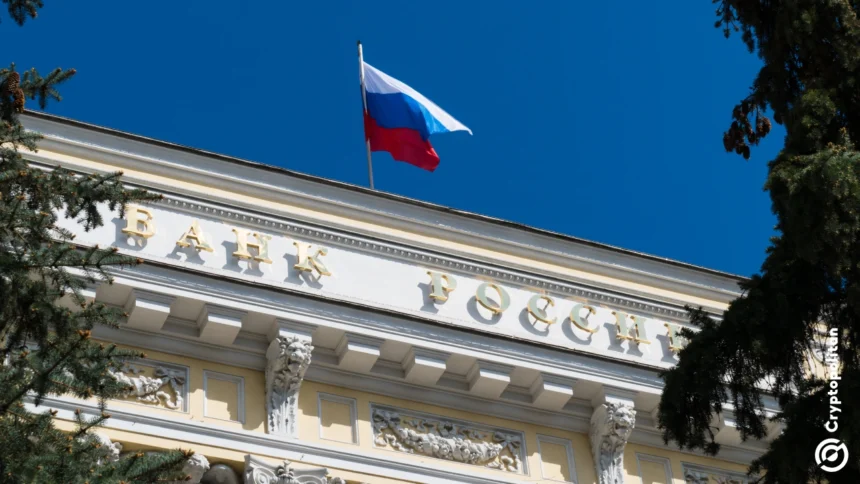
Moscow’s central bank plans to give Russian investors access to derivative products based directly on cryptocurrencies.
Currently, similar products on the Russian market only track foreign funds or crypto indexes. Monetary authorities are currently working on adjusting Russia’s regulations.
CBR to allow Russian investors to buy true crypto-based derivatives
The Central Bank of Russia (CBR) is preparing to allow investors access to derivative financial instruments (DFIs) related to cryptocurrencies such as Bitcoin (BTC).
The move will allow Russian private investors to acquire futures and options directly related to cryptocurrencies, Russian business news portal RBC said on Tuesday, citing two financial industry sources.
According to their information, brokers, management companies and exchanges will be authorized to offer DFIs and bonds to their customers, the value of which will depend on the exchange rate of the underlying cryptocurrencies on the global trading platform.
The financial authority confirmed the news through a representative, adding that it is currently drafting the necessary changes as the regulatory framework needs to be amended.
“We are working to fine-tune regulations to remove existing barriers to the issuance of DFIs and structured debt directly linked to cryptocurrencies.”
The Bank of Russia has allowed financial companies to offer crypto derivatives on the Russian market. circular It was published in May of this year.
However, the products made available are indirectly linked to cryptocurrencies, as they track the performance of foreign exchange traded funds (ETFs) or cryptocurrency indexes, rather than the price of the digital asset itself.
For example, Russia’s two main exchanges, based in Moscow MOEX and in St. Petersburg SPBthe two companies have launched a product that tracks the stock price of BlackRock’s iShares Bitcoin Trust ETF (IBIT).
But now regulators want domestic companies to be able to issue Russian financial products directly linked to cryptocurrencies as early as this year, or no later than the first quarter of 2026.
One of the report’s sources said professional market participants are already developing such products for retail investors.
Bank of Russia is currently serious about cryptocurrency investment
Although Russia’s central bank has been reluctant to legalize the free circulation of cryptocurrencies in the domestic economy, it has gradually begun to accept investment in cryptocurrencies.
Since authorizing the offering of crypto derivatives this spring, financial regulators have indicated plans to allow investment funds to acquire these types of products.
Last week, one of the company’s top executives said: Confirmed CBR will allow capital management companies to invest in products linked to cryptocurrencies by 2026.
Purchases are currently prohibited, but the restrictions are expected to be lifted early next year, said Olga Shishlyanikova, director of the bank’s investment and financial intermediation department.
In all of these cases, only “highly qualified” investors are still able to access cryptocurrencies. In addition to legal entities, individuals who meet certain minimum requirements regarding annual income and other investments, such as securities, may also fall into the special category.
No matter how you look at it, this also applies to new financial instruments that are tied to the prices of major cryptocurrencies. At the moment, providing direct exposure to crypto assets is out of the question.
In addition, crypto derivatives are offered exclusively within the framework of the “Experimental Legal Regime” (ELR), which also facilitates crypto payments in cross-border payments under sanctions against Russian companies and banks.
However, the Bank of Russia recently revealed that it wants to also regulate crypto investments beyond the ELR, and urged Moscow lawmakers to adopt a separate bill in 2026. announced This will allow Russian commercial banks to handle virtual currencies.
Want to present your project in front of top crypto people? Find out in our next industry report where data meets impact.






